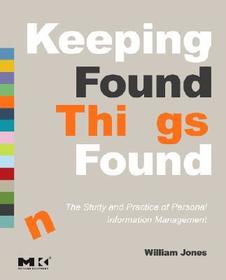
The Collected Papers of Albert Einstein, Volume 16 (Documentary Edition)
The Berlin Years / Writings & Correspondence / June 1927–May 1929
Series: Collected Papers of Albert Einstein; 16;
- Publisher's listprice GBP 167.00
-
79 784 Ft (75 985 Ft + 5% VAT)
The price is estimated because at the time of ordering we do not know what conversion rates will apply to HUF / product currency when the book arrives. In case HUF is weaker, the price increases slightly, in case HUF is stronger, the price goes lower slightly.
- Discount 10% (cc. 7 978 Ft off)
- Discounted price 71 806 Ft (68 387 Ft + 5% VAT)
Subcribe now and take benefit of a favourable price.
Subscribe
79 784 Ft

Availability
Temporarily out of stock.
Why don't you give exact delivery time?
Delivery time is estimated on our previous experiences. We give estimations only, because we order from outside Hungary, and the delivery time mainly depends on how quickly the publisher supplies the book. Faster or slower deliveries both happen, but we do our best to supply as quickly as possible.
Product details:
- Publisher Princeton University Press
- Date of Publication 13 July 2021
- Number of Volumes Print PDF
- ISBN 9780691216812
- Binding Hardback
- No. of pages1128 pages
- Size 254x190 mm
- Language English
- Illustrations 28 b/w illus. 0
Categories
Long description:
A definitive scholarly edition of the correspondence and papers of Albert Einstein
During the period covered by this volume, Einstein aims to discover whether one can derive the electron’s equations of motion directly from the field equations of general relativity, and he embarks on a new approach to unified field theory founded on teleparallel geometry. On these topics, he engages in exchanges with J. Grommer, C. Lanczos, and particularly with C. H. Müntz, and corresponds with mathematicians like R. Weitzenböck and É. Cartan.
Einstein attends what will be considered a historic 1927 Solvay Conference where the new quantum mechanics is discussed, but in fact he makes very few remarks.
In an important prelude to his eventual emigration to the United States, he is invited in September 1927 to accept a research professorship at Princeton University.
Despite the sudden onset of a severe heart ailment in 1928, followed by an almost year-long period of convalescence, Einstein maintains a sustained engagement with scientific work, correspondence, and social and political issues. He publishes many articles and interviews designed for a popular audience and continues various technical preoccupations, including publishing a patent for a novel “people’s” refrigerator and being intimately involved in the design of his famous sailboat.
Einstein advocates for domestic legislative reform, gay and minority rights, European rapprochement, and conscientious objection to military service. He resigns from his positions at the Hebrew University. He also tries to avoid the fanfare marking his fiftieth birthday in March 1929 yet is “buried under a paper avalanche” from the tributes.
His hiring of Helen Dukas as his assistant, who accompanies Einstein to the end of his life, is of great significance for the ultimate preservation of his written legacy.


The Trial and Execution of Socrates: Sources and Controversies
15 526 HUF
13 974 HUF

Exploring the Influence of Personal Values and Cultures in the Workplace
91 659 HUF
84 327 HUF








